A planned Saudi Arabian-backed sustainable aviation fuels plant in north-east England could be one of the first to start producing SAF made from household and commercial waste in the UK, following the project’s entry into the Front-End Engineering and Design (FEED) phase. The £1 billion ($1.2bn) Lighthouse Green Fuels plant, to be located in the Net Zero Teesside industrial cluster, will use gasification and Fischer-Tropsch technology to convert one million tonnes of waste into 180 million litres of SAF and green naphtha per year, the equivalent of fuelling more than 15,000 short-haul flights a year, and plans to start operations in 2027. The location has the potential to utilise the cluster’s proposed carbon capture and storage (CCS) infrastructure to further reduce the carbon intensity of the SAF produced. Global project development, manufacturing and engineering company alfanar has also announced it is actively evaluating other UK sites for its second and third SAF plants to be built by 2030 and 2035 respectively. To get these investments off the ground, alfanar is urging the UK government to progress its intended SAF mandate and introduce a price stability mechanism for early SAF projects.
“With the third largest aviation network in the world, and with one of the world’s largest potential offshore CO2 stores, the UK has the industrial and geological advantages to become a global leader in developing green aviation fuel with the lowest possible emissions using CCS technology,” said Mishal Almutlaq, Chief Investment Officer of alfanar. “That is why we want to build our first ever SAF plant in the UK by 2027 and two further plants by 2035.”
The Lighthouse Green Fuels project entered the FEED phase last month after awarding the FEED services contract to global industrial engineering company Worley, which will develop the existing front-end engineering package and integrate the licensor scope to provide a greater level of definition to the project. An important phase in any large construction, FEED can comprise a thorough project scope, complete project budget, total cost of ownership, implementation timeline and initial risk assessment. Being the first to reach the FEED milestone, claims alfanar, makes it the most advanced SAF project of its size in the UK.
Welcoming the announcement, UK Aviation Minister Robert Courts said: “Aviation will be central to our future growth, so it’s essential we deliver greener flying. Thanks to alfanar’s investment, the UK could be producing cleaner fuel in a few years, not only making us more sustainable, but also creating more jobs and strengthening our economy.”
The project aims to make fuel that produces 80% fewer GHG emissions than fuel from fossil sources, so saving around 300,000 tonnes per year of emissions. By potentially utilising the East Coast Cluster’s CCS infrastructure, the plant could achieve GHG savings in excess of 750,000 tonnes per year, said alfanar.
The Mayor of Tees Valley, Ben Houchen, said the plant would create 700 good-quality, well-paid jobs during construction and 240 full-time roles when operational, adding: “This milestone by alfanar further strengthens our region’s position as the number one place to develop new clean energy tech.”
The project was awarded £2.4 million ($2.8m) in grant funding last December under the Department for Transport’s Green Fuels, Green Skies competition for the development of SAF production plants in the UK.
“To deliver net zero aviation, the government has already established the Jet Zero Council, has announced grant funding for SAF projects and is consulting on a Jet Zero Strategy. To continue this leadership, and to enable alfanar’s first SAF project and other similar early projects to progress, price certainty is also needed,” said Almutlaq. “We are therefore calling on the UK government to progress the SAF mandate and introduce a price stabilisation mechanism, such as a Contract for Difference for SAF.”
Teesside is the location of the UK’s first Hydrogen Transport Hub and local Teesside Airport is aiming to be the UK’s first hydrogen-ready airport. As well as its SAF production ambitions, alfanar, which has a presence in the Middle East, Asia, Africa and Europe, said it plans to develop further green projects in the UK and beyond utilising CCS and hydrogen infrastructure.
Image: Render of proposed Lighthouse Green Fuels plant








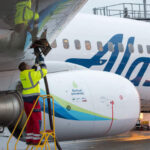
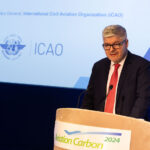
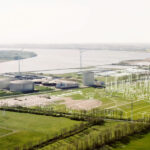
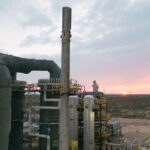

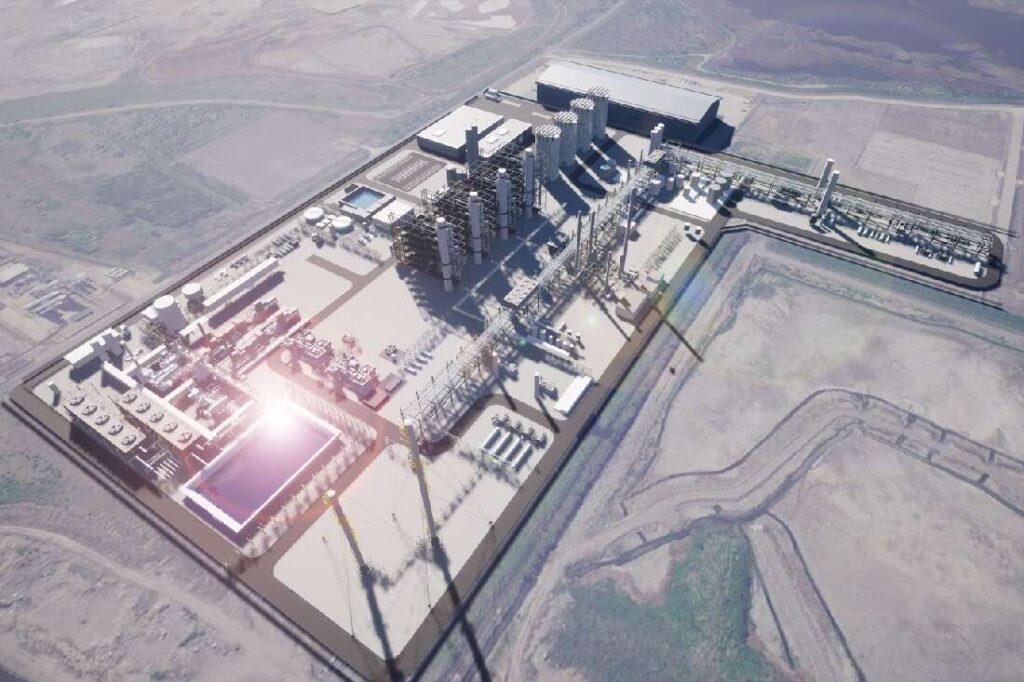

More News & Features
Progress on decarbonising the airline sector has been slow this year, says IATA chief
EASA releases status report on Europe’s SAF production and readiness to meet blending targets
UK government sets out new Jet Zero focus and launches consultation on CORSIA global emissions scheme
European and US research programmes expand to better understand aviation non-CO2 climate effects
T&E joins aviation and climate scientists in urging action to reduce warming contrails
New study highlights differing strategies and barriers to decarbonising aviation in UK and Europe